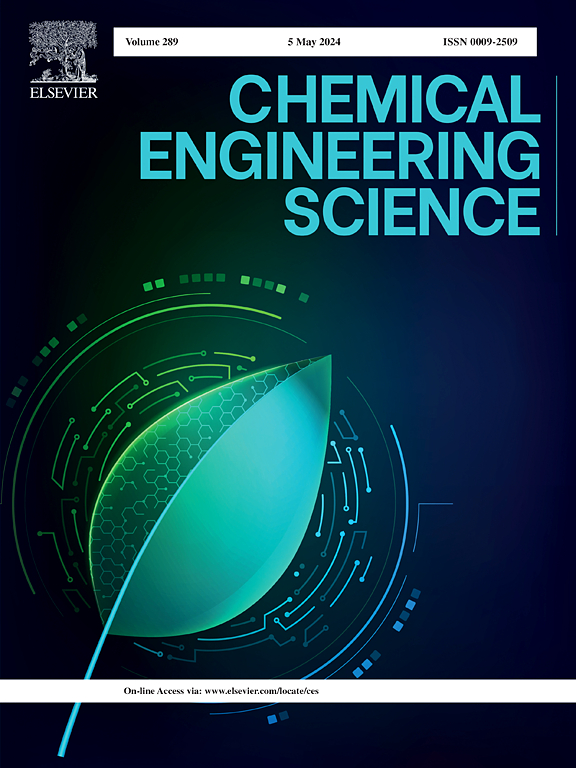Impact of citrate ester surfactants on the MMP, extraction and swelling behaviors between CO2 and oil: Applications for enhanced shale oil recovery
IF 4.1
2区 工程技术
Q2 ENGINEERING, CHEMICAL
引用次数: 0
Abstract
The impacts of citrate ester surfactants on the MMP, extraction and swelling behaviors between CO2 and oil were investigated to enhance shale oil recovery. Firstly, the dissolution behaviors of citrate ester in CO2 and the influence of citrate ester on the MMP between CO2 and oil were investigated by the phase-transition-point measurement. Then, the effects of citrate ester on the extraction and swelling behaviors between CO2 and oil were explored by a newly-designed method. At last, the effect of surfactant on the shale oil recovery during CO2 huff-n-puff process was discussed. The results show that compared with citrate ester B, citrate ester A has a lower cloud-point pressure and higher effect to decrease the MMP of oil and CO2. The extraction ratio and swelling ratio both increase with the increase of CO2 pressure and the increase of oil content in the oil and CO2 systems. Citrate ester A can enhance the extraction and swelling effects of CO2 to oil and the promoting effect increases with the increasing surfactant concentration. The presence of 1% citrate ester A in CO2 can enhance the oil recovery about 10% caused by the decreasing MMP, improvements of extraction, swelling and solution-gas-drive effects.
柠檬酸酯表面活性剂对MMP、CO2与油之间的萃取和膨胀行为的影响:提高页岩油采收率的应用
为了提高页岩油的采收率,研究了柠檬酸酯表面活性剂对MMP、CO2与油之间的萃取和膨胀行为的影响。首先,通过相变点测量研究了柠檬酸酯在CO2中的溶解行为,以及柠檬酸酯对CO2与油之间MMP的影响。然后,用新设计的方法探讨了柠檬酸酯对CO2与油的萃取和溶胀行为的影响。最后讨论了表面活性剂对CO2吞吐过程中页岩油采收率的影响。结果表明,与柠檬酸酯B相比,柠檬酸酯A具有更低的云点压力和更高的降低油和CO2 MMP的效果。随着CO2压力的增加和油- CO2体系含油量的增加,萃取率和溶胀率均增大。柠檬酸酯A能增强CO2对油的萃取和溶胀作用,且促进作用随表面活性剂浓度的增加而增强。在CO2中加入1%的柠檬酸酯A,由于降低了MMP,改善了萃取、溶胀和溶气驱效应,可使采收率提高10%左右。
本文章由计算机程序翻译,如有差异,请以英文原文为准。
求助全文
约1分钟内获得全文
求助全文
来源期刊

Chemical Engineering Science
工程技术-工程:化工
CiteScore
7.50
自引率
8.50%
发文量
1025
审稿时长
50 days
期刊介绍:
Chemical engineering enables the transformation of natural resources and energy into useful products for society. It draws on and applies natural sciences, mathematics and economics, and has developed fundamental engineering science that underpins the discipline.
Chemical Engineering Science (CES) has been publishing papers on the fundamentals of chemical engineering since 1951. CES is the platform where the most significant advances in the discipline have ever since been published. Chemical Engineering Science has accompanied and sustained chemical engineering through its development into the vibrant and broad scientific discipline it is today.
 求助内容:
求助内容: 应助结果提醒方式:
应助结果提醒方式:


